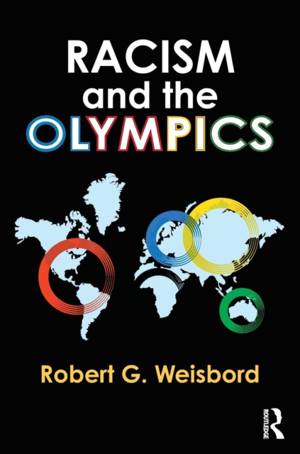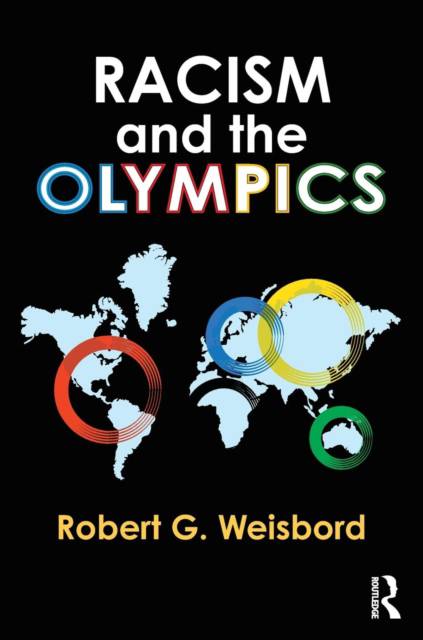
Bedankt voor het vertrouwen het afgelopen jaar! Om jou te bedanken bieden we GRATIS verzending (in België) aan op alles gedurende de hele maand januari.
- Afhalen na 1 uur in een winkel met voorraad
- In januari gratis thuislevering in België
- Ruim aanbod met 7 miljoen producten
Bedankt voor het vertrouwen het afgelopen jaar! Om jou te bedanken bieden we GRATIS verzending (in België) aan op alles gedurende de hele maand januari.
- Afhalen na 1 uur in een winkel met voorraad
- In januari gratis thuislevering in België
- Ruim aanbod met 7 miljoen producten
Zoeken
Omschrijving
Sports are the opiate of the people, particularly in the United States, Europe, and parts of South America. Globally, billions of fans feverishly focus on the summer and winter Olympics. In theory, international fraternalism is boosted by these "friendly competitions," but often national rivalries eclipse the theoretical amity. How the Olympics have dealt with racism over the years offers a window to better understanding these dynamics. Since their revival in 1896, the modern Olympics were periodically agitated by political and moral conundrums. Racial tensions, the topic of this volume, reached their apex under the polarizing presidency of Avery Brundage. Race in sports cannot be disentangled from societal problems, nor can race or sports be fully understood separately. Racial conflict must be contextualized. Racism and the Olympics explores the racial landscape against which a number of major disputes evolved. The book covers various topics and events in history that portray discrimination within Olympic games, such as the Nazi games of 1936, the black American protest on the victory stand in Mexico City's Olympics, as well as international political forces that removed South Africa and Rhodesia from the Olympics. Robert G. Weisbord considers the role of international politics and the criteria that should be used to determine nations that are selected to take part in and serve as venues for the Olympic Games.
Specificaties
Betrokkenen
- Auteur(s):
- Uitgeverij:
Inhoud
- Aantal bladzijden:
- 214
- Taal:
- Engels
Eigenschappen
- Productcode (EAN):
- 9781412865197
- Verschijningsdatum:
- 31/01/2018
- Uitvoering:
- Paperback
- Formaat:
- Trade paperback (VS)
- Afmetingen:
- 156 mm x 234 mm
- Gewicht:
- 326 g

Alleen bij Standaard Boekhandel
+ 131 punten op je klantenkaart van Standaard Boekhandel
Beoordelingen
We publiceren alleen reviews die voldoen aan de voorwaarden voor reviews. Bekijk onze voorwaarden voor reviews.









